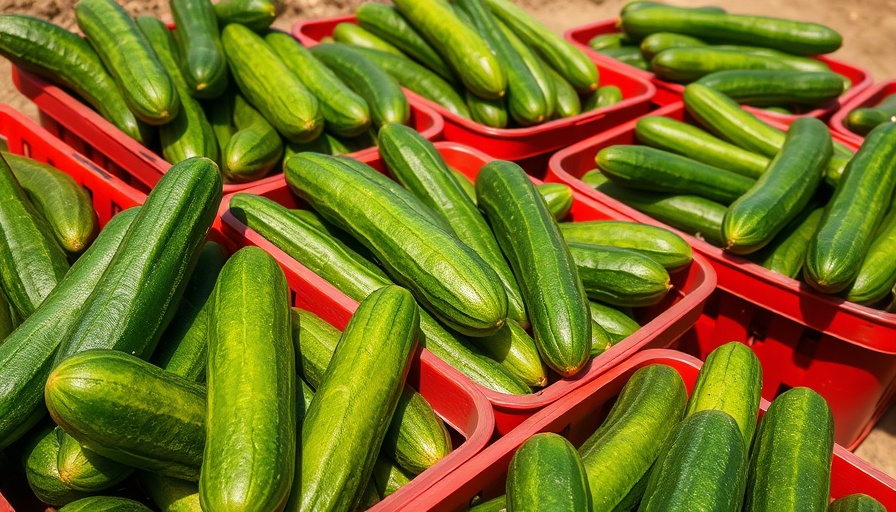
A Closer Look at the Salmonella Outbreak Linked to Cucumbers
In a startling development, a salmonella outbreak connected to cucumbers has reported sickness in at least 45 individuals across 18 states, raising significant health concerns nationwide. This outbreak, traced back to Bedner Growers in Boynton Beach, Florida, has prompted several retailers, including Target, to issue recalls of potentially contaminated products. As of the latest updates from the Centers for Disease Control and Prevention (C.D.C.), health officials warn that the actual number of infections may be much higher, given that many cases often go unreported.
The Impact of Salmonella on Health
Salmonella is a type of bacteria that can reside in various contaminated foods, which can lead to serious health issues. Symptoms of salmonella infection typically include diarrhea, fever, stomach cramps, and dehydration, which can be particularly dangerous for vulnerable populations such as the elderly and those with pre-existing health conditions. Currently, 16 individuals have been hospitalized, emphasizing the potentially severe consequences of this outbreak.
Tracing the Source: Bedner Growers
The primary source of this outbreak has been identified as Bedner Growers, a cucumber supplier distributing products from late April to mid-May this year. These cucumbers were sold not only to consumers but also to distribution networks for various restaurants and grocery stores. Health officials have indicated that many of the sick individuals had traveled on cruise ships departing from Florida shortly before they fell ill, hinting at how quickly foodborne pathogens can spread in such environments.
Recent Trends in Food Safety and Recalls
This incident is part of a growing trend emphasizing the need for heightened food safety protocols. With recalls increasing in frequency across the food industry, it is crucial for consumers to remain vigilant about food safety practices. Previous salmonella outbreaks have been traced back to various food products, showcasing persistent vulnerabilities in the food supply chain. For instance, there has been a noticeable rise in similar cases linked to fresh produce—raising questions about agricultural practices and distribution standards.
The Future of Food Safety
As the food industry grapples with these challenges, industry experts are calling for improved food safety measures. Innovations such as enhanced traceability systems, rigorous testing standards, and a framework for rapid recalls could significantly mitigate the risks associated with foodborne illnesses. The C.D.C. also urges consumers to stay informed and cautious, recommending thorough washing of all fruits and vegetables and monitoring health advisories.
What Consumers Can Do
For consumers, staying informed is crucial. Keeping updated on food recalls and health advisories can significantly reduce the risk of illness. Public health officials emphasize the importance of checking packaging and being aware of recent recalls, especially for products like cucumbers, which may not always be thoroughly cooked before consumption.
Looking Beyond the Outbreak
This salmonella outbreak not only underscores the risks associated with contaminated foods but also highlights the essential role of public awareness in food safety. It prompts a discussion about our food supply chains and the accountability of suppliers, producers, and retailers in ensuring the safety of what we consume.
As health officials continue to monitor the situation, consumers are encouraged to maintain their vigilance. Outbreaks like this bring to light the importance of understanding food safety, being proactive in following health recommendations, and advocating for better practices across the food industry.
 Add Row
Add Row 
 Add
Add 


 Add Row
Add Row 
 Add
Add
Write A Comment